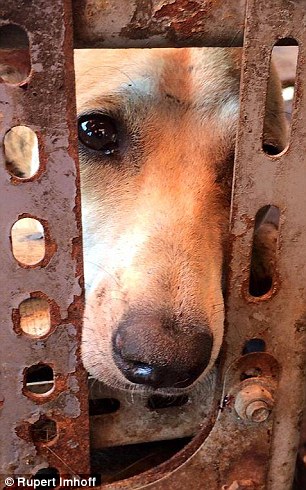Pets are members of our families, and some of us like to bring them along when we travel.
Here are some important things we need to look out for before bringing pets to Indonesia.
Is your pet allowed to set foot in Indonesia?
The first thing you need to consider is whether your pet is on the protected list in the Convention on International Trade in Endangered Species of Wild Fauna and Flora (CITES). If the animal is on the list, you will need to secure permits with CITES here.
The next thing you need to find out is whether your pet is pregnant or nursing. Pets that are pregnant or nursing are not allowed to enter the country.
Your pet will need to secure papers
- Rabies Vaccination Papers
Once you have resolved the issues above, you will need proof that your pet has recently been vaccinated against the rabies virus (if your pet is a mammal). The document should show that your pet was vaccinated more than 30 days before arriving in Indonesia, but not more than 12 months before arrival.
Puppies and kittens should be vaccinated against rabies too. The minimum age for vaccination is three months, so the youngest age of puppies or kittens allowed in the country is four months old.
Also, you have to find out which part of Indonesia you and your pet will be visiting. Only pets from rabies-free countries may enter rabies-free areas in Indonesia.
Rabies-free areas in Indonesia are all islands surrounding Sumatra, West Kalimantan, Maluku, West Papua, East Nusa Tenggara, West Nusa Tenggara, Madura Island, East Java, Central Java and Yogyakarta.
Any pets arriving from a country not considered to be rabies-free may enter territories in Indonesia that are not rabies-free but will not be allowed to pass through Jakarta.
- Proof of Blood Titer Test
If your country of departure is not in the list of rabies-free countries, the country will require your pet to have a blood titer test. A blood titer test is given 30 days before a rabies vaccination to ensure that enough antibodies are created so that the vaccine will have maximum effect.
- Testing for H3N2 Virus
In addition, if your pet is a cat or dog and leaving from the US or Canada, then it will be tested for the H3N2 virus and quarantined for 14 days if your pet is infected with the virus.
- Health Certificate From a Licensed Veterinarian
Birds, invertebrates, tropical fish, reptiles, amphibians and some mammals (like rodents) do not require proof of rabies vaccination but will need a health certificate from the country of origin. The certificate should be issued by a licensed veterinarian.
In addition, the veterinarian should accomplish the Health Certificate for Indonesia, with an endorsement from your country’s relevant agency (USDA or CFIA in the case of the United States or Canada). A form may be ordered here.
- Import License From the Indonesian Government
Another document you will need is an import license. This is issued by the Director of Animal Health of Indonesia. To get the license, you will need a recommendation from the pertaining office in the province of your destination. Take note that it usually takes about 30 days to receive the license after application.
Find out how you and your pet can be comfortable while in transit
When you are ready and decide to fly with your pet, you will have to ask the airline about their regulations on pets beforehand, because not all airlines allow pets on board. If pets are allowed on board, you may carry your it as excess baggage. This will allow you to check on your pet any time within the trip period.
If you want to maximize your resources, you may also transport it through cargo unaccompanied, as it is cheaper than booking excess baggage.
Although Indonesia does not require it, pet travel experts recommend installing a microchip in your pet. A microchip will have a record of your contact information which can be useful if ever your pet gets lost. If you are travelling with a pet that doesn’t have a microchip, your pet should be wearing tags that have your contact information.
Upon arrival, your pet may only enter the country in specified areas
Please note that there are only a few points of entry for pets from outside the country. If you are travelling by sea, your pet will only be allowed to enter the ports of Tanjung Priok, Cirebon, Semarang, Tanjung Perak, Belaway Deli, Telus Bayur, Ujung Pandang and Manado. By air, the airports of Jakarta, Medan, Pekanbaru, Manado and Surabaya will be the allowed port of entry.
If your pet needs to be quarantined, it will only be allowed to enter through the Soekarno-Hatta International Airport in Jakarta. You will need to communicate with the airport or quarantine station about your date of arrival at least two days ahead of time.
Research your area’s environment and pet services
Once you start living with your pet in Indonesia, it is also worth noting that the country has tropical weather. Pet food may need to be eaten earlier than usual and water and food bowls must always be kept clean as bacteria thrives more easily in hot climates.
Pet care clinics and stores are not hard to find in the country. In Bali, if your pet is in an emergency, you may bring your pet to the Restiati Veterinary Clinic. This clinic has a 24-hour emergency service phone (+62 361 7442430/0812 395 2470/0811 389 001).
In Jakarta, you may check out Klinik & Salon Hewan to take care of your pet’s needs. Groovy, an online pet shop, will deliver pet products at your doorstep.
See: Garda Satwa Indonesia: Defenders of Animal Welfare
Having pets in Indonesia is a new addition to the local culture.
It is also important to know about Indonesian laws and cultural aspects that could affect your pet. Causing harm to animals is prohibited, but the government encourages stray pets to be killed instead of keeping them in a shelter.
In addition, locals may not be too inclined to understand pet owners, as owning a pet is not that common in the country. A typical Indonesian family does not own a pet (except for birds). Rural families raise animals for food, not for companionship. However, attitudes about pet-keeping are changing in urban areas.
If you are a pet owner and are planning to live with some locals, you may need to find out whether they would mind if your pet lives on the same premises. Indonesia is predominantly a Muslim country and the religion does not allow its followers to be touched by dogs.
Always keep your pet safe because there is also an existing pet meat trade in the country, which shows demand for dog, cat, rabbit, bat, rat, pig and snake meat.
If you want to find other dog lovers in the area, you may visit the Jakarta Dog Lovers Facebook Page. If you have a purebred, you can share your experiences and expertise in caring for purebreds by registering with the All Indonesia Kennel Club or Perkumpulan Kinologi Indonesia.
For pet lovers who are seeking partners that love pets too, they may be able to find their future partners from the PETO app. Downloads are available here.
Primary source: PetTravel
Image Credits: Pet Attack, Daily Mail





